Occasional Musings on Arts & Community in the City of Glass

Welcome to our every other month conversation on arts and community in Vancouver! I am delighted you’re here.
I respectfully acknowledge that I live and write this post on the unceded Tsleil-Waututh, Squamish, and Musqueam lands. And, I bow to these founding peoples for generously hosting me on their beautiful, holy lands.
Having not heard much from you, I’m not sure how I’m doing as I follow the inquiry: What is an arts community? Hypothetically you’re out there, so I persevere. Some, even I at times, might think me obsessive. I’d counter with the suggestion that I’m devoted. The inquiry is ongoing, a work-in-progress, a labor borne of my commitment to writing and to the ever-changing, expanding, and morphing community that roots and flowers in the fertile ground where words and arts converge.
From dictionary definitions and common thought, we all know community is made not of one, but of many. Incidentally, the etymological origins of community come from the Latin, 1325–75; commūnitās, equivalent to commūni(s) common + -tās -ty (from Dictionary.com).
So, I’m smirking and squirming as I type in solitude about a collective I long for and hope to foster here — in this blog space.
What I’m after, in part, is not so much writing about community, but making it, enacting it, here, at the site of this blog and among those who care to congregate around it — intimately, nakedly. With that intention, I continue to experiment with ways and means to manifest community.
Over the past two months, this intention lead me to conduct what I’m calling the Tiny Interview Project. TIP’s format’s simple, consisting of two questions. As I bumped into people at poetry readings, in bookshops, at the local cafe, I spontaneously invited them to respond and offered the following directions:
Thanks for agreeing to the Tiny Interview Project. I'm going to give you the two questions. The idea is that immediately after you read them, you respond to them off the top of your head. Set aside pondering. Be straight and in the moment. Shrug off pressure to be definitive. Answer for today. Then, without editing or futzing, send your answers still glistening with freshness, right back to me. Here goes!
1. What's your artistic medium/form of expression?
2. How do you define community?
One element of this project that’s different from past gestures I’ve made toward community-making in this blog is who I’m engaging. If my community is made up of concentric circles then, in previous posts, I’ve perhaps been focused on those artists I am acquainted with whom I know I want to engage. For TIP, I’m inviting those closest to me, people with whom I already have the experience of common interests.
I plan to continue the Tiny Interview Project for a while, collecting responses as a way to help me think and talk about what arts community is… to assemble it around me… and to celebrate the light of those who are a part of my cherished, beloved personal arts community. Together, we shall see what develops…
For right now, behold the first in the series of responses from Steve Frost and annie ross (their last names rhyme!), two special tea lights in my personal arts community, who took my interview questions beautifully seriously, making art in and of their responses.
Read on!
Steve Frost
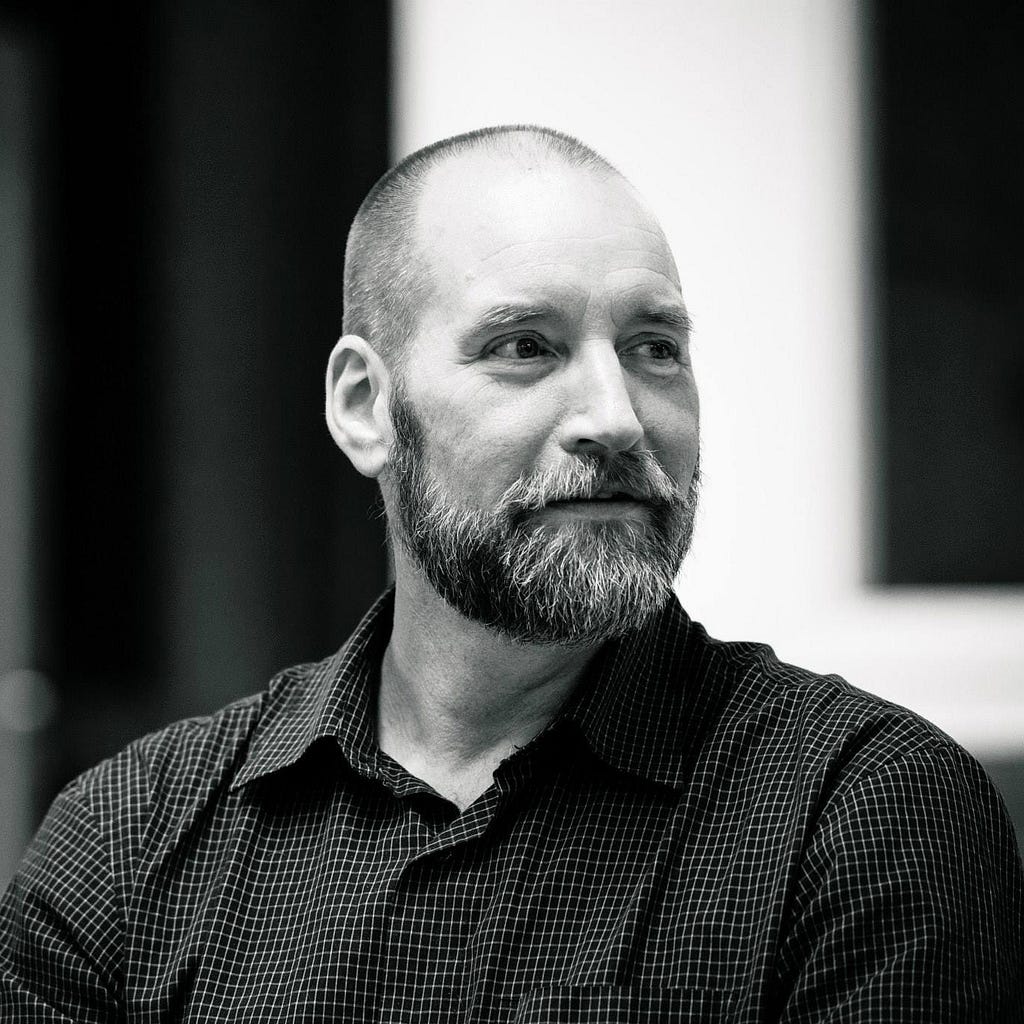
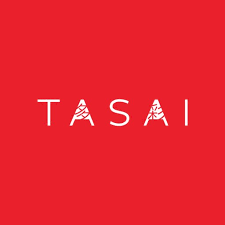
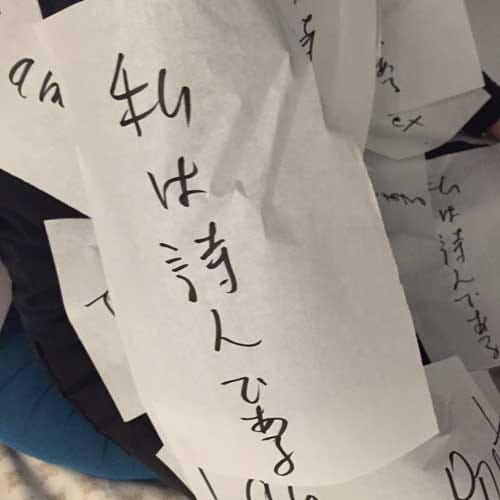
What’s your artistic medium/form of expression?
I trained as a painter, abstract paintings in acrylic, deeply influenced by the New York School and the attendant tensions that come with living 30 years after the corporate coopting that occurred, had occurred. I accidentally became a writer. I write about art-based leadership development, bringing the wisdom of creative practice to leaders in an organizational context for the development of sustainable creativity. *whew*
I accidentally became a writer.
In connection to that, my creative practice involves creating organizations in which sustainably creative individuals might flourish. That takes the form of an artist collective I founded called Tasai, of which I am Executive Director, and a design incubator/co-working space called SPACE that I’m helping launch. It might be odd to think of an exploration of collective agency as creative practice, but to me it makes sense. An organizational structure as blank canvas…and go…
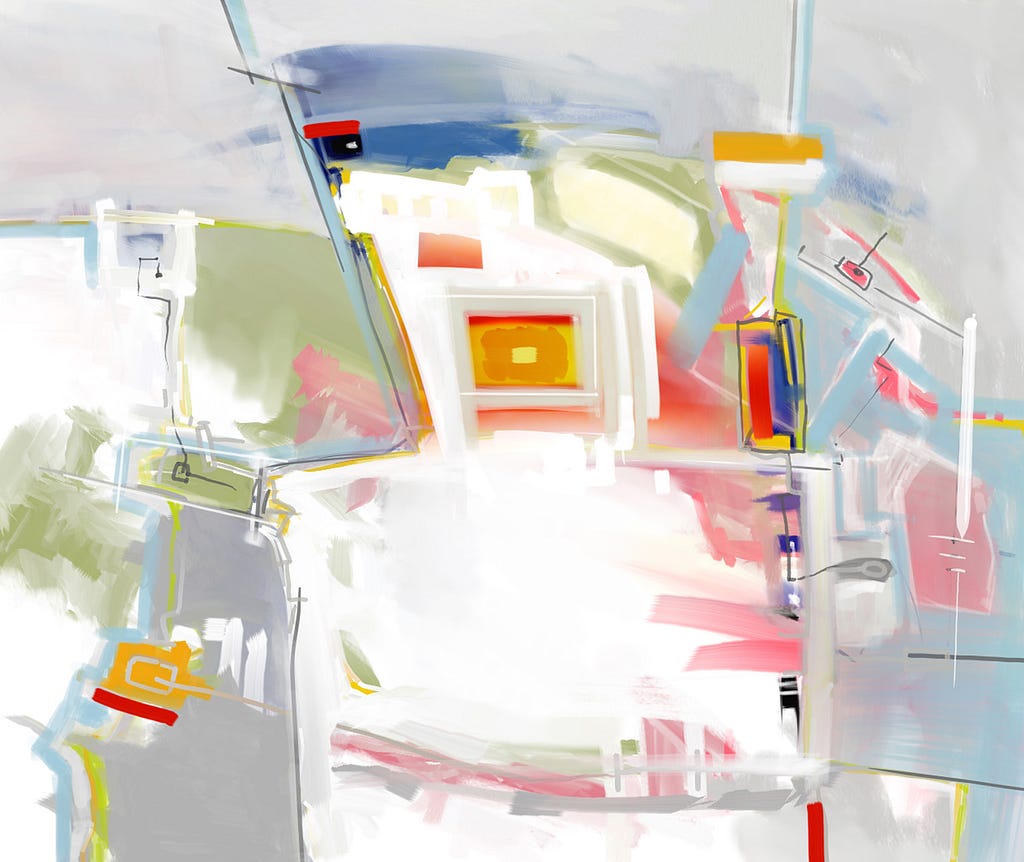
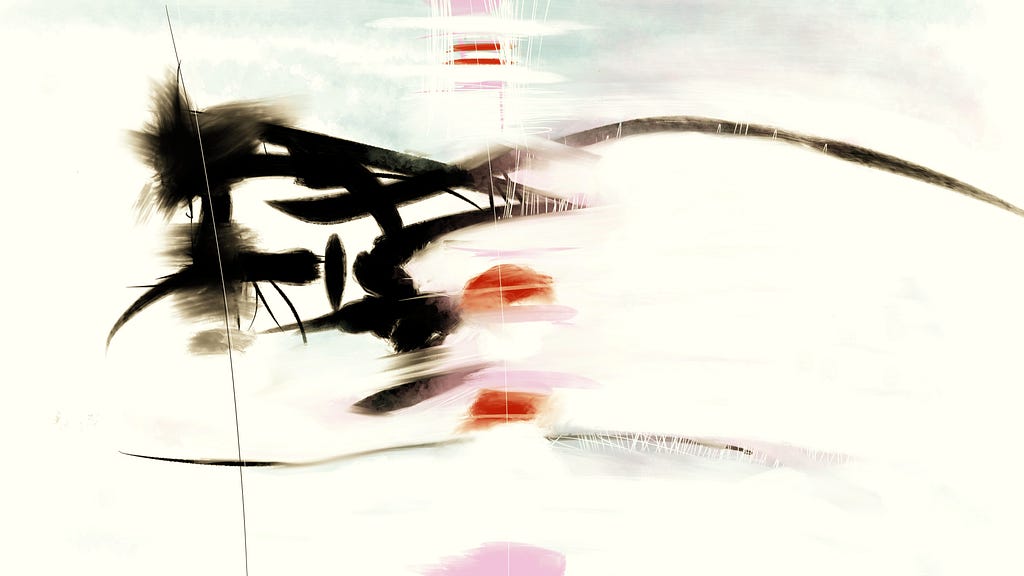
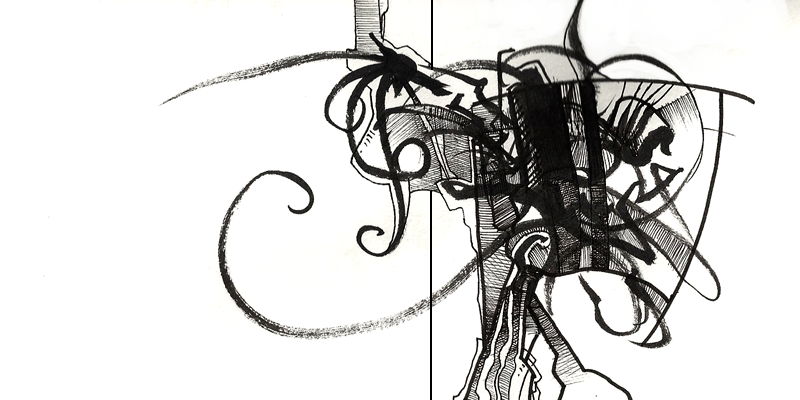
How do you define community?
Community is like a mosaic. Mosaics are works of art made from broken pieces of pottery. We’re all broken in different ways. When we come together — if there’s any vulnerability involved, any humanity present — our weirdly shaped and sometimes jagged edges can make anything other than broken pieces of pottery hard to imagine.
Being with this community helps me gain my humanity.
Strangely, inevitably(?), if we abide and find our place we discover difference isn’t a necessary evil to be gotten over. Difference is what makes the whole thing beautiful; the variety colours, the variety of shapes and sizes that comes from our different ways of being broken is exactly the thing that turns a bunch of broken pottery into a work or art.
We are all just us.
I get that definition from my little faith community. It is one of the oddest collections of human beings I’ve ever been a part of. People I otherwise would have no contact with; First Nations brothers and sisters, people with mental health issues, homeless people. They are people who have no artifice or pretence, they are simply human in all their flawed beauty. A friend has described it as a cross between an E.R. ward and an art gallery. Being with this community helps me gain my humanity. I’m not an “us” helping “them.” We are all just us. We’re all just human.
Artists, I think, have a capacity to tenaciously insist on being human.
This definition spills over into my understanding of a community of artists. Artists, I think, have a capacity to tenaciously insist on being human. It’s why they often don’t fit, particularly in organizations and institutions that are explicitly de-humanizing. Because of their capacity to insist on being human, artists who take the time to be mutually present to each other tend to do so in a human way.
— to leave the comfort and control of a world-on-my-terms with me at the centre for the sake of being present with another.
The added benefit, of course, that artists make shit. So, when a group of artists gather they’re going to tend to de-centre themselves — to leave the comfort and control of a world-on-my-terms with me at the centre for the sake of being present with another. When that happens, whether they planned it or not, they experience the connectedness of all things, the great floating tribe of humankind.
A community of artists is, of course, not perfect and broken…
So of course they’re going to make shit about their experience of shared humanity, and that benefits everyone. A community of artists is, of course, not perfect and broken and will get it wrong and will hurt each other and maybe the whole thing goes down in flames. Granted. However, a community of artists’ capacity to imagine and communicate a picture of the world we all want — one of collaboration, cooperation, and flourishing — makes them of particular importance and deserving of our collective support and care.
annie ross
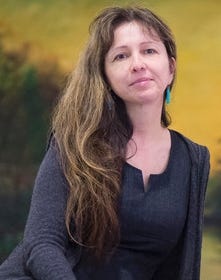
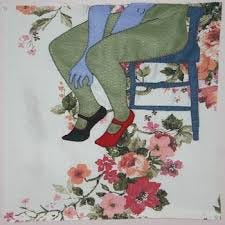
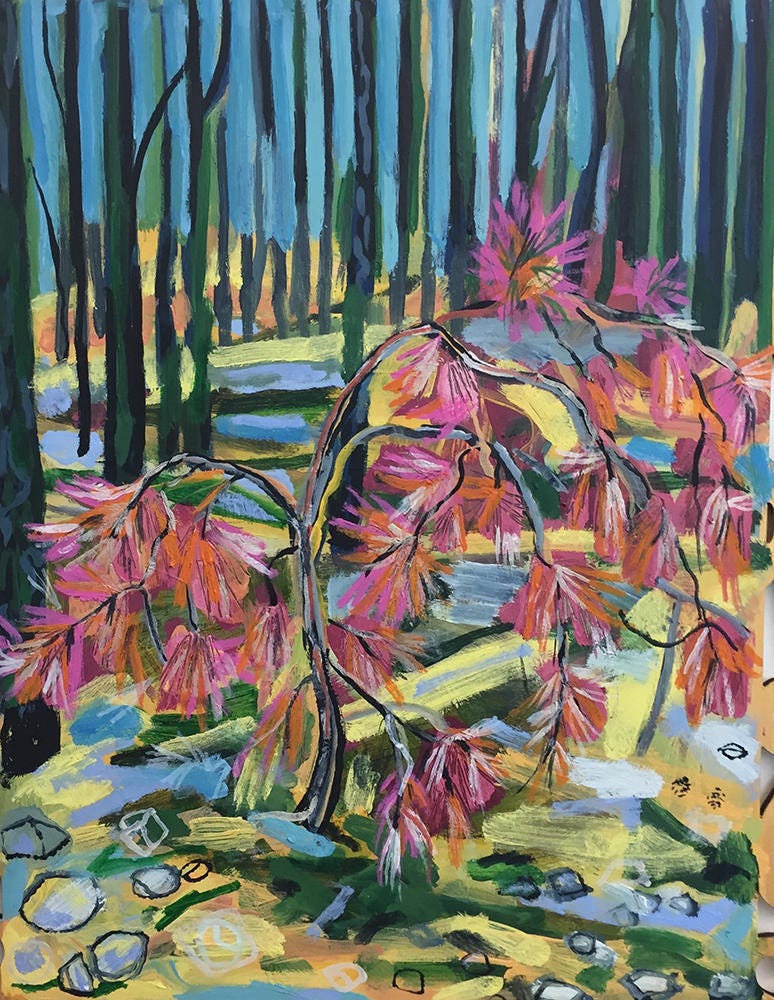
What’s your artistic medium/form of expression?
sometimes it’s the thing in my head that translates into how i walk that day.
‘yeah, baby’, ‘i did say that’, and ‘come on with it’. it’s the things i say to myself, ‘canada can take it’, when i wonder if i should live.
when i stop and look at the space between stars and wonder
my paint talks to me. not like this (typing). like that (dreams). it’s in the night sky, when i stop and look at the space between stars and wonder, what color is that? i stare and stare. sometimes i see a satellite, a shooting star.
my paint talks to me. not like this (typing). like that (dreams).
in my mind i mix paint; viridian, thalo, but it’s never right. i have to brighten it, i think, but white paint can not do what it needs to make this color, alive in this second, again.
what color is that?
right now i sigh, thinking of how things pass, and as i look out at the space between cedar branches and wonder, what color is that?
but white paint can not do what it needs to make this color
it isn’t grey or blue. there’re men putting in a gas line wearing orange and smoking as they stand in dirt. there is no way to tell anyone what that grey is.
i think when i paint them, maybe, someone, somewhere, will be reminded. oh, my beloved! they will say, and love them even more.
i guess they have to sit and look between stars and branches. is it enough for them to live? for us to live?
there is no way to tell anyone what that grey is.
what happens to those spaces when they are no longer filled with stars, with branches, with great horned owl. i think when i paint them, maybe, someone, somewhere, will be reminded. oh, my beloved! they will say, and love them even more.
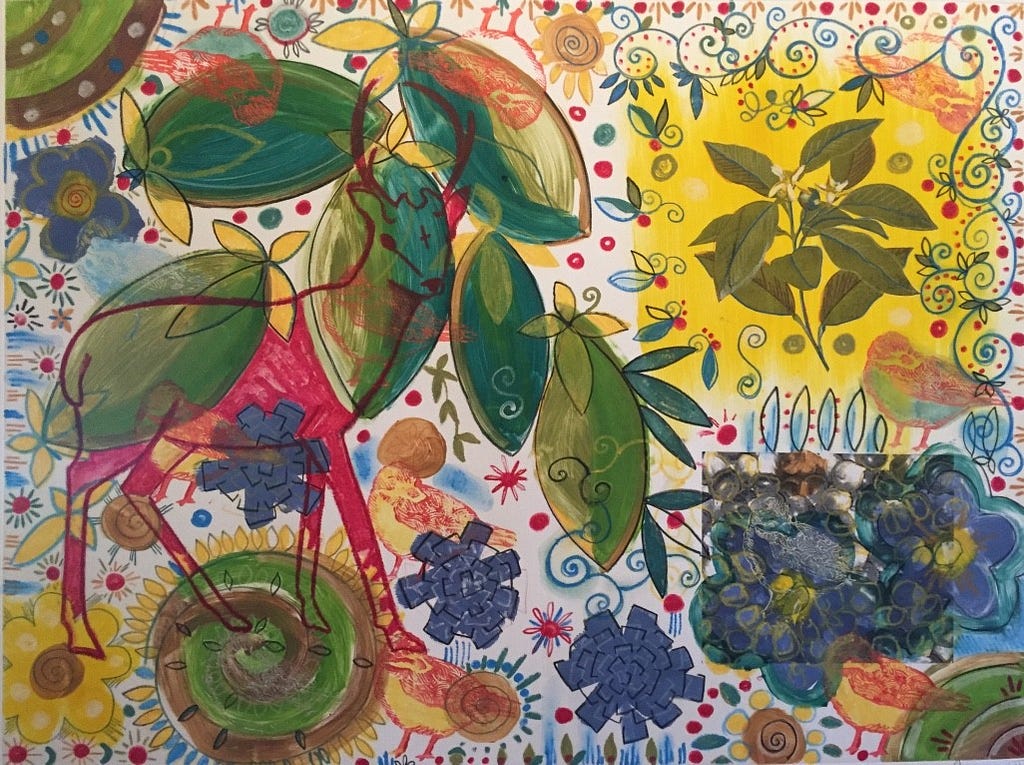
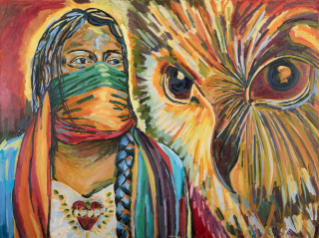

How do you define community?
it was the day that i first noticed a bug in a rose, a slug in the garden, a fly resting on a sunbeam as i napped.
there is where i belong.
it was the rattlesnake in the sequoias, the bear who stepped on the edge of my sleeping bag, the deer who ran almost through me.
there is where i belong.
but loneliness, loneliness, loneliness.
i can try to make things with humans — conversations, papers, poems, paints, and all that, but loneliness, loneliness, loneliness.
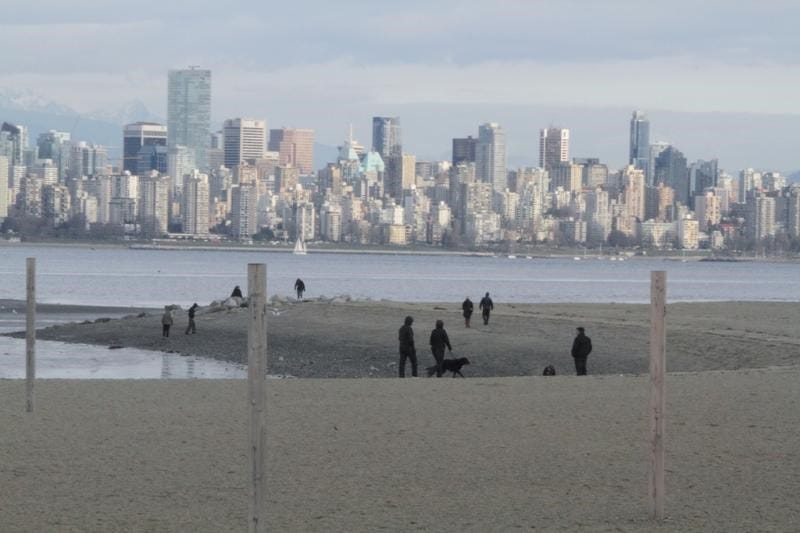
I bow to Steve Frost and annie ross for their candor and spontaneity in responding — in such grand ways — to the questions of the Tiny Interview Project. And, I bow to Vincent Wong for generously allowing me to share with you two more of his glorious photos, expressing gathering in community.
Of all the things you could read, you’ve been here with me. Thank you, dearest readers.
Look for the next P & H in two months.
In the meantime, reach out, leave a comment. Tell me what you want more of and less of in this blog — and in your community — and what’s just right. It’s always good to know what’s just right.
You can also follow me @herkind to discover my other articles.
→ Press the ❤ below if you liked this story. It means a lot to me. Plus, it helps other people to discover it :)
Be Kind. Make Art. Foster Community.
Peerings & Hearings was originally published in Anomaly on Medium, where people are continuing the conversation by highlighting and responding to this story.
